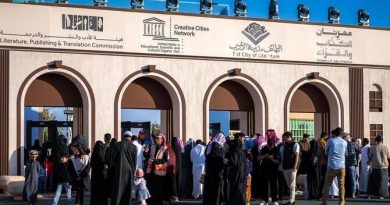Saudi Arabia Strengthens Public Safety with Nationwide Early Warning System Tests
Riyadh – Saudi Arabia has taken another proactive step toward enhancing public safety and emergency preparedness through the successful nationwide testing of its early warning systems.
The General Directorate of Civil Defense conducted a comprehensive test across the Kingdom, activating both fixed sirens and mobile phone alerts to evaluate the readiness, efficiency, and coordination of the National Early Warning Platform.
This large-scale exercise demonstrates the Kingdom’s continued commitment to ensuring the safety of its residents and strengthening resilience in times of crisis.
The coordinated test, conducted simultaneously across multiple regions, aimed to verify that citizens and residents can respond effectively to official emergency alerts.
The Civil Defense confirmed that the test was designed to raise awareness about how early warning systems work, ensuring that people recognize different alert tones and know how to respond appropriately.
The alerts were broadcast in several phases: a new warning tone was transmitted at 1:00 p.m., followed by a national alert tone at 1:10 p.m., and the activation of fixed sirens across Riyadh, Tabuk, Jeddah, and Makkah at 1:15 p.m.
This carefully planned schedule allowed authorities to assess the synchronization of multiple communication systems, from fixed sirens to mobile alerts, ensuring comprehensive coverage even in densely populated or remote areas.
By integrating modern cellular broadcasting technology, the Kingdom aims to guarantee that warnings reach individuals quickly, no matter where they are located.
This innovative approach enhances situational awareness and reinforces the Kingdom’s focus on adopting advanced technology for public safety management.
Experts praised the initiative, emphasizing its importance in building a culture of preparedness among citizens. Dr. Osama Ghanem Al-Obaidy, a professor of law and security policy expert, commended the Civil Defense for its proactive measures.
He noted that early warning systems play a crucial role in saving lives during natural disasters, fires, or other emergencies.
According to him, including mobile alerts ensures that people receive timely notifications, even in situations where sirens might not be heard, such as inside buildings or vehicles.
This comprehensive method, he added, highlights the government’s commitment to integrating innovation and technology in national security planning.
Residents also expressed strong support for the test, recognizing its importance in strengthening the nation’s overall safety framework.
Riyadh resident Saleh Al-Dosri described the drill as a “positive step toward ensuring public safety,” adding that it reassures citizens that emergency systems are fully functional and ready to respond.
Many residents appreciated the clarity of the alerts and the government’s effort to familiarize the public with these tones, ensuring that future warnings are quickly understood and acted upon.
The General Directorate of Civil Defense continues to play a leading role in developing and maintaining advanced systems to respond to emergencies effectively.
By conducting such nationwide drills, the authority not only ensures operational readiness but also reinforces community awareness and trust in national preparedness measures.
These efforts align with Saudi Arabia’s Vision 2030 goals, which emphasize the creation of safe, resilient, and sustainable communities supported by world-class infrastructure and technology.
This initiative reflects the Kingdom’s broader commitment to safeguarding lives and property through proactive planning, innovation, and collaboration.
As the country continues to modernize its emergency response systems, these regular tests serve as vital exercises in ensuring rapid communication, public engagement, and preparedness for any eventuality.
By prioritizing readiness and awareness, Saudi Arabia sets an example in the region for integrating technology and community involvement in civil defense strategies.
The early warning test stands as a reminder of the nation’s dedication to protecting its people and enhancing public safety through continuous improvement and innovation.



